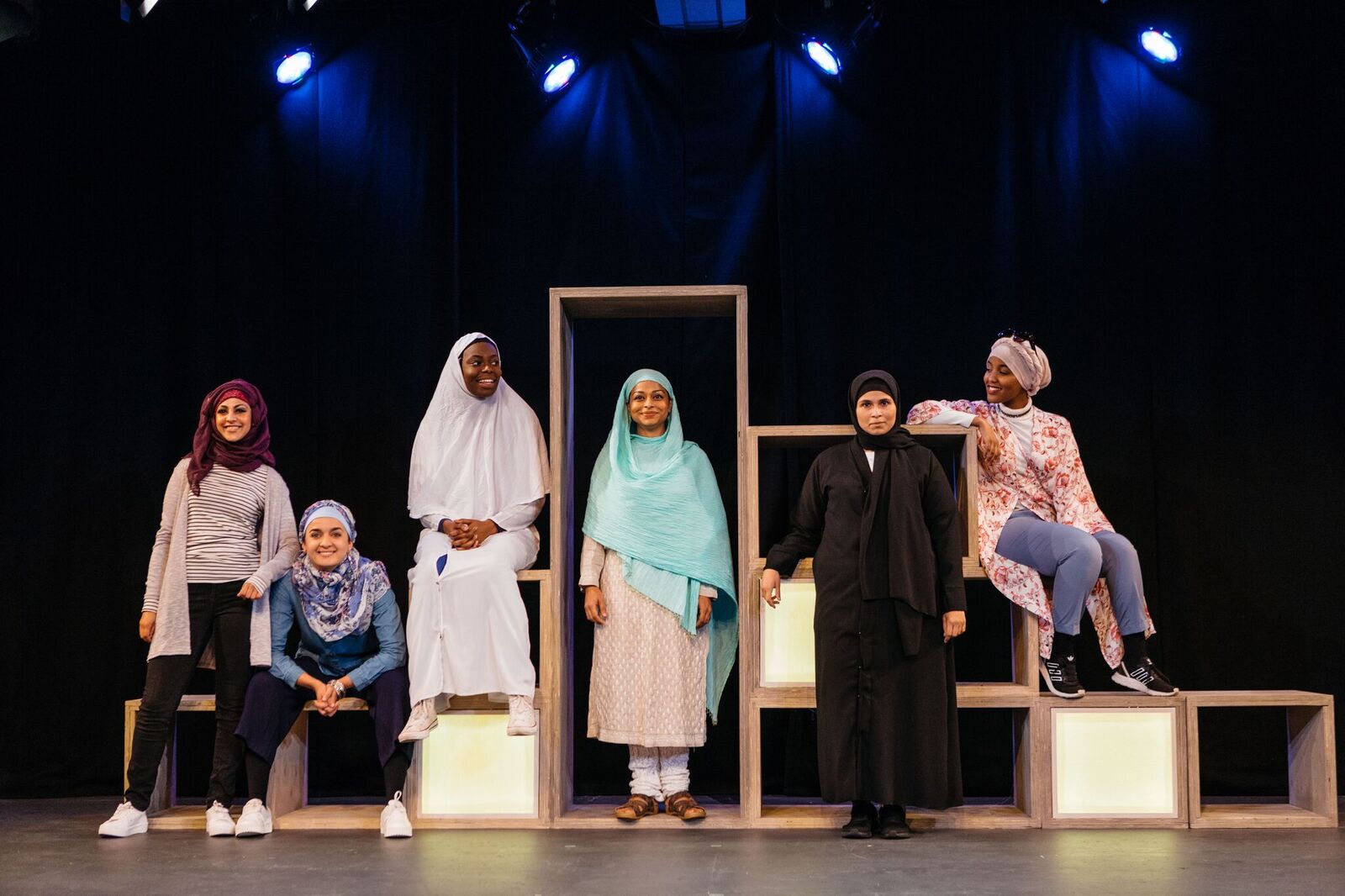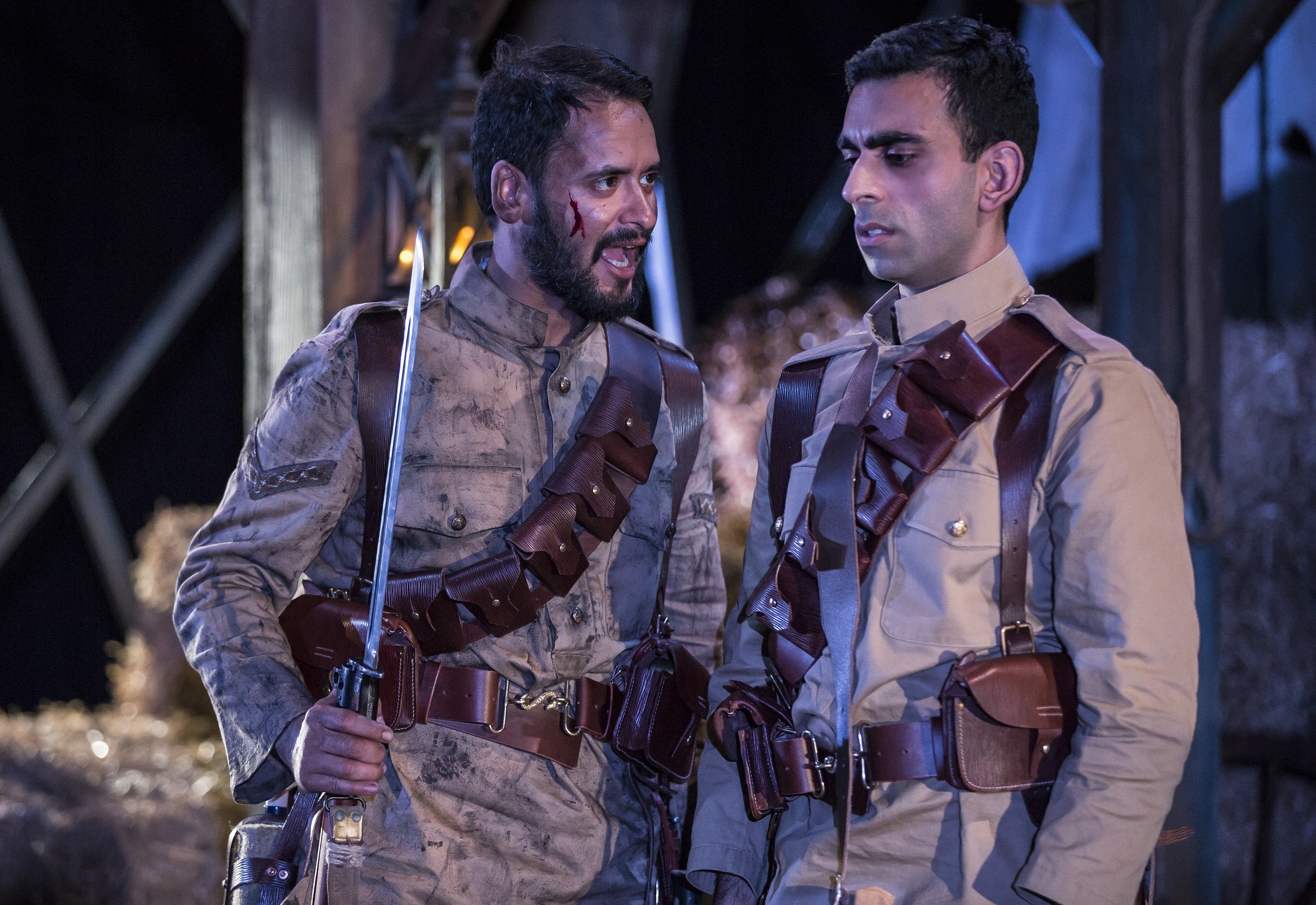Tell me more about your play and the themes you explore.
I wrote Where I Live And What I Live For as part of a two-year project at Theatre Absolute called Are We Where We Are? The project asks for a response to the quote from American novelist Henry David Thoreau, “We are not where we are, but in a false position”.
For me, this quote instantly threw up the idea of progress in terms of the history of race in this country and the current political climate. My piece is a monologue from the point of view of Saleeha, a second-generation British Pakistani, and her experience of microaggressions in the workplace. I drew a parallel with the experience of her father, who suffered a violent racist incident when Saleeha was younger.
I focused a lot on how language is used, and what language can tell us about progress, or the lack of it. Saleeha may not have faced physical violence but the language used to refer to her by her colleagues, who she also considers to be her friends, tells us a lot about the very same prejudices and stereotypes that still exist about people of colour.
For me, the piece questions whether we’ve really progressed if we look beneath the surface of the way we interact as a society.
What are you hoping to explore through your work?
Race, class and intersectional feminism are the recurring themes in my writing. These are things that matter to me a lot and I feel are extremely important to explore. I try my best to dissect these issues in my writing rather than just showing them. A lot of what I write is based on everyday experiences of people around me.
What excites you about writing for the stage?
The fact that it’s live in front of an audience. There’s nothing quite like seeing people concentrating and really captured in a moment of your play. It’s also incredibly scary because the response comes pretty much straight away, right in front of you. Facial expressions, people muttering after the piece is over. This is, of course, also stressful as I tend to keep watching to see if anyone seems bored! I’m always looking for anyone tapping their toes. But overall, when you see people really engaged with your work, or when there is complete silence and you know everyone is there in that moment. That’s a really unique feeling.
What are some of your experiences or challenges of being a playwright?
Playwrighting is a difficult medium, as much as it’s rewarding one. Breaking in can be difficult, especially since there are a lot of other writers trying to do the same thing. But when you find that network of people who can support you, the industry really seems to open up. For me, that support has come through Tamasha Theatre, and being part of Tamasha Playwrights. The programme opened up a lot of doors for me and I know I always have someone to turn to in Fin, Tamasha’s Artistic Director, and the other wonderful playwrights that were part of the same cohort as me.
Rabiah Hussain is a London based playwright, poet, storyteller and performer. Her short plays have been part of programmes with The Bunker Theatre, RADA, Bechdel Theatre, Take Back Theatre and Three Pegs Productions. Rabiah is currently part of Tamasha Playwrights 2016-2017 – a writer-led collective with Tamasha Theatre. Rabiah has performed poetry at The Rich Mix, The Space Arts Centre, The Lost Theatre and at Brixton BookJam. Her poetry has been filmed as part of a project for Battersea Arts Centre. She was also a storyteller for Battersea Art Centre’s London Stories project. As a poet and performer, Rabiah works collaboratively across different platforms, including film and art. She was part of the B3 Media Talent Lab 2016. Rabiah has written opinion pieces for Gal-Dem Magazine, The F-Word, Burnt Roti Magazine and Huffington Post. Her writing focuses on political, social and cultural issues, particularly around women, race and class. Rabiah also works in Marketing and Communications.

